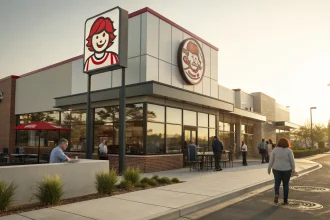Law enforcement officials addressed the public’s lingering questions about the Bryan Kohberger case during a press conference following his sentencing. The primary focus of the briefing was their strategic decision not to compel Kohberger to reveal his motive for the crimes that shocked the community.
Kohberger, who was recently sentenced for his crimes, has maintained silence regarding his motivation throughout the legal proceedings. This lack of explanation has frustrated many, including victims’ families seeking closure. However, prosecutors and investigators defended their approach during the media briefing.
Legal Strategy Behind the Decision
According to the lead prosecutor, the decision not to force a motive revelation was carefully calculated. “Our primary goal was securing a conviction that would stand up to appeals,” the prosecutor explained. “Attempting to compel the defendant to reveal his motive could have created legal complications that might have jeopardized the case.”
The prosecution team emphasized that while understanding the “why” behind such crimes is important for public closure, it wasn’t essential to prove guilt beyond reasonable doubt. Legal experts present at the conference noted that courts focus on establishing facts of the crime rather than psychological motivations.
The district attorney added, “We gathered substantial physical evidence and witness testimony that proved Kohberger’s guilt. Pursuing the motive might have extended the trial unnecessarily or created opportunities for the defense to introduce doubt.”
Investigative Considerations
The lead detective on the case provided insight into the investigative perspective. “Sometimes forcing a suspect to explain their motives can lead to false narratives designed to minimize culpability or manipulate public perception,” the detective stated.
Law enforcement officials also revealed that their investigation had developed theories about Kohberger’s possible motivations based on evidence not presented at trial. However, they chose to keep these theories private to respect the victims’ families and avoid speculation that could not be definitively proven.
“We believe the families deserve facts, not theories. Without Kohberger’s honest admission, any motive we suggest would be speculation,” said the police chief.
Support for Victims’ Families
Officials acknowledged the difficult position this decision placed on the victims’ families, who continue to seek answers about why their loved ones were targeted.
The victim advocate coordinator explained the support systems in place: “We’ve provided counseling resources and regular case updates to help families process their grief, even without the closure a motive might provide.”
Several family members were consulted before the decision was made, according to the prosecution team. While reactions were mixed, many understood the legal reasoning behind not pursuing the motive aggressively.
A representative from the victims’ families who spoke at the press conference stated, “While we desperately want to know why, nothing will bring our loved ones back. We trust the authorities made the right legal decision to ensure justice was served.”
Future Possibilities
The authorities did leave open the possibility that Kohberger might eventually reveal his motives. The district attorney noted that post-conviction, some perpetrators choose to share their motivations once the legal consequences are finalized.
The prison warden explained that Kohberger would have access to psychological services during his incarceration, which sometimes leads to revelations about motives in similar cases.
Law enforcement officials concluded the press conference by assuring the public that the case file remains open for any new information, including potential motive revelations from Kohberger in the future.
For now, the community must come to terms with the reality that some questions may never be answered, even as justice has been served through the sentencing process.









